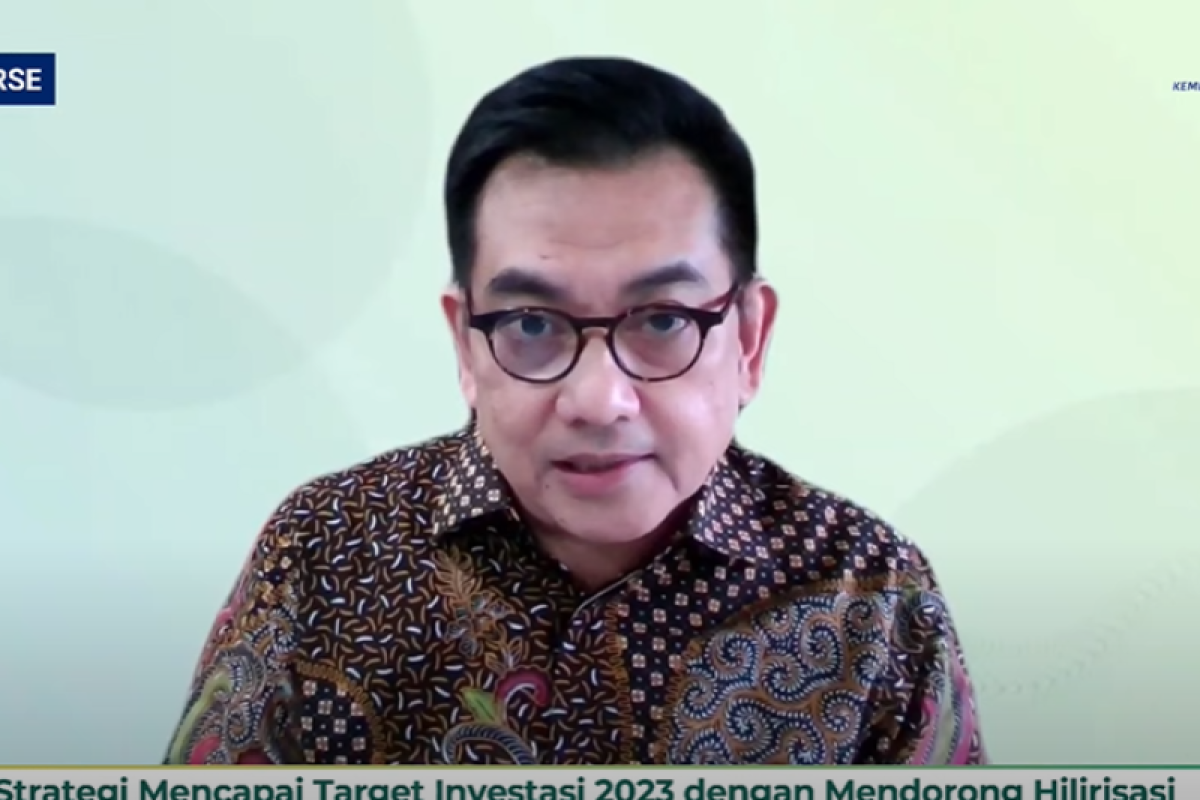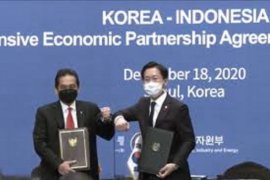Jakarta (ANTARA) - Deputy of the Strategic Downstream Field at the Investment Ministry/Investment Coordinating Board (BKPM) Heldy Satrya Putera highlighted Indonesia's goal to rank among the world's top stainless steel and electric vehicle (EV) battery producing countries through nickel downstreaming.
Putera remarked that Indonesia is aiming to achieve the predicate of the world's top two stainless steel producing countries and also rank in the top five for the production of EV batteries.
At the "Strategies to Achieve Investment Target of 2023 by Encouraging Downstream" webinar in Jakarta, Wednesday, Putera explained that nickel downstreaming is being prioritized for stainless steel and EV battery raw materials industries.
"The priority is to utilize nickel as the raw material for stainless steel and EV batteries. We have calculated how much added value is generated and how much the global demand is," he remarked.
"In addition, we have assessed the need for investment, its impact on GDP (Gross Domestic Product), employment, and the number of exports that can be increased," he noted.
Based on his presentation, it can be noted that the government is targeting 9.5 times the added value, with global demand to hit US$365 million by 2045 for the stainless steel industry. With regard to EV batteries, the government is aiming for 67 times the added value, with potential global demand of up to US$5.91 trillion.
On the other hand, the potential investment value for nickel downstreaming for both sectors until 2040 is US$127.9 billion, contributing as much as US$43.2 billion to the GDP, employing 357 thousand workers and increasing the export potential up to US$81 billion.
Putera further explained that the high added value resulting from nickel downstreaming was one of the main considerations for the government to encourage the effort.
The other factor is that nickel is one of Indonesia's main commodities. In fact, Indonesia is the country with the largest nickel reserves in the world as has been highlighted by many.
Hence, nickel could, in fact, be more domestically utilized.
In addition, the promising demand in the future is considered as being another point of consideration for the government to continue supporting the downstreaming efforts on the mineral commodity.
Putera also noted that nickel downstreaming has had a significant impact on investment realization in recent years.
He further revealed that investment realization in the base metal and metal goods industry had been increasing steadily after the implementation of the nickel export and downstream ban.
In terms of exports, the downstream sector has succeeded in boosting national export performance, from only US$3 billion in 2017 to US$29 billion in 2022.
"The export value has now reached over 30 billion US dollars. This means more than 10 times increase in our exports resulted from the downstream efforts," the deputy further revealed.
Related news: Ministry promotes circular economy approach on used EV batteries
Related news: Indonesia expected to become world's main nickel-based goods producer
Related news: Indonesia to become world's leading battery producer: Lahadalia










